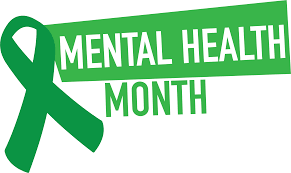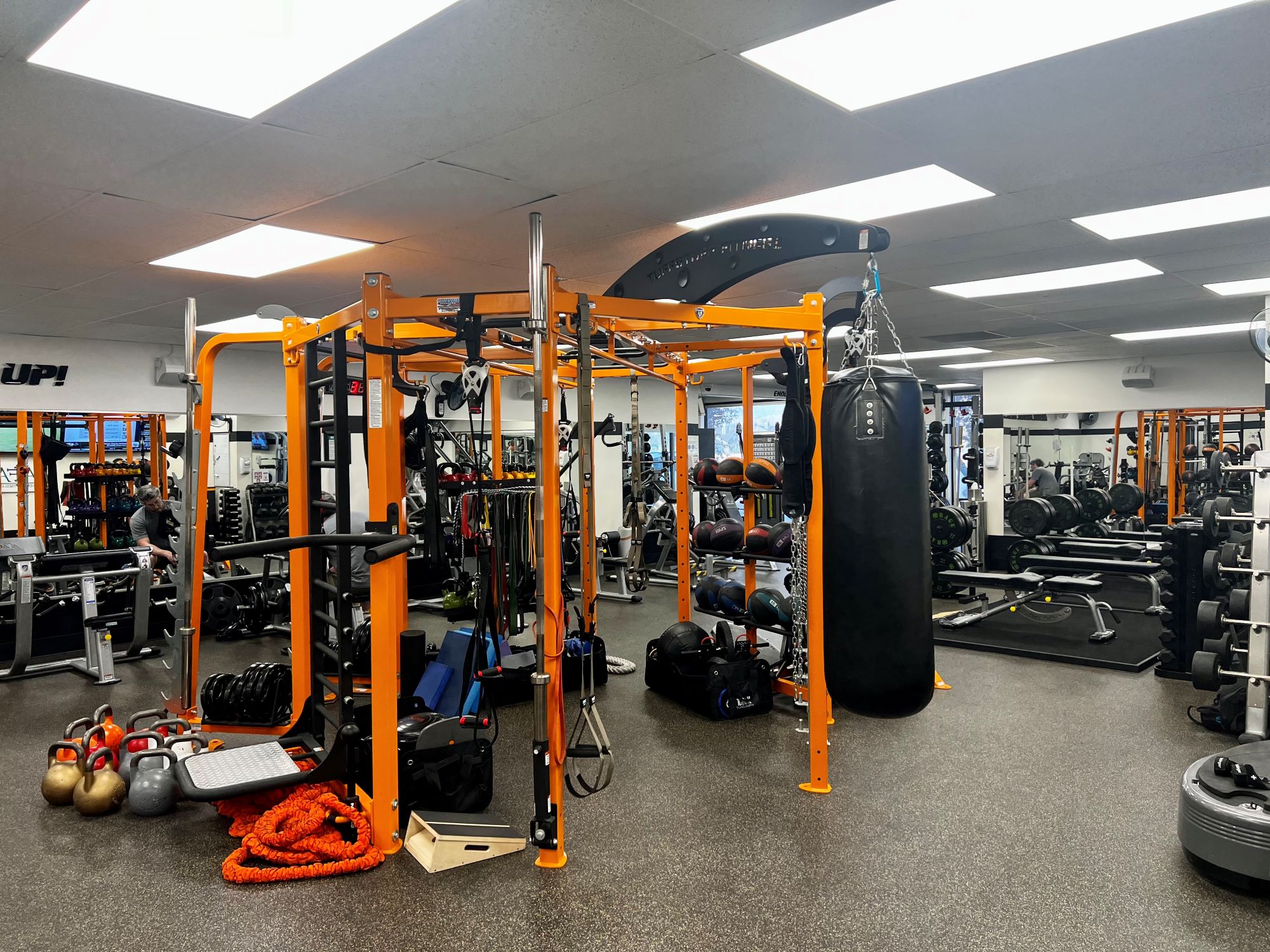In 1949, Mental Health America declared May as Mental Health Month. Also known as Mental Health Awareness Month, this 31-day event focuses on spreading the word that mental health is important and something we should all care about.
Each year in May, Mental Health America offers a toolkit of materials to help people understand and improve various aspects of mental health. It probably comes as no surprise to members of our Thornton, CO, gym that one of the most effective ways to boost mental health is to become more physically active.
What activities and workouts can you join at our gym to enhance your own mental health and wellbeing? And how does exercise improve our mental health, anyway? Read on to learn more.
Our Gym’s Mission Is to Support Both Physical and Mental Wellbeing
At Adventure Fitness Athletic Club, we understand that physical activity and mental health go hand-in-hand. Our mission is to be a gym where members and staff can pursue a healthy and happy lifestyle. That’s why we provide a safe, welcoming, fun, unique, and encouraging environment that supports people as they strive to achieve their fitness goals. Our holistic approach is designed to enhance physical, social, emotional, and psychological wellbeing.
The owner of Adventure Fitness Athletic Club, Susan Schaffner, frequently discusses the connection between physical fitness and mental health at her free monthly Bariatric Support Group Meetings. These meetings take place at AFAC on the first Tuesday of every month and are open to the public.
“At our meetings, we talk about how pushing yourself to get exercise helps build self-esteem which is a big part of mental health,” Susan explained. “Believing in yourself and achieving more than what you thought was possible greatly helps your mental and physical health.”
How does exercise improve mental health?
If you’re a member of our local gym, you probably already know that exercise is good for your physical health. And you might even suspect that working out improves your mental health, too, but better mental health is not as obvious as the bigger muscles and stronger body that workouts give you.
It turns out, many scientific studies have shown a clear connection between regular exercise and an overall sense of wellbeing. People who work out feel more energetic, have a better memory, lower their stress, and are more positive about themselves and their lives. Regular exercise has also been shown to be a powerful medicine in the treatment of anxiety, depression, and ADHD.
Thankfully, you don’t have to be an elite athlete to reap the psychological benefits of exercise. Regardless of your age or fitness level, even a modest amount of exercise — at least 150 minutes of moderate intensity exercise per week — can help you deal with mental health issues, improve your emotional wellbeing, and get the most out of life.
Exercise helps depression
Many studies have shown that exercise can treat mild to moderate depression. One study at Harvard found that walking for an hour a day, or running for just 15 minutes a day, can reduce the risk of depression by 26%.
It’s not entirely understood how exercise helps depression, but it’s clear that exercise does make people feel better mentally and can even keep depression and anxiety from coming back. It’s believed that exercise eases depression by:
- Releasing feel-good endorphins and other natural brain chemicals that enhance a sense of wellbeing
- Taking your mind off your worries so that you can escape the cycle of negative thoughts that can feed depression
- Helping you gain confidence as you meet or exceed physical challenges
- Getting you into better shape which makes you feel more positive about your appearance
- Encouraging social interaction because you’ll get more chances to meet and socialize with others
- Showing you how to cope with depression in a healthy way, instead of resorting to self-destructive behaviors like drinking too much alcohol or dwelling on negative thoughts
Exercise helps anxiety
Exercise is an effective treatment for anxiety, as well, and that’s great news considering one in five adults report having a chronic anxiety disorder. The single most effective non-medical solution for treating anxiety happens to be exercise.
Research shows that aerobic exercise is especially helpful for people with chronic anxiety, such as bike riding, walking, jogging, and dance class. These activities can also help people who are feeling anxious before a big event like an exam, presentation, or meeting.
Exercise is believed to help anxiety by:
- Diverting your attention away from the thing you’re anxious about
- Decreasing muscle tension
- Making anti-anxiety neurochemicals like serotonin available for your brain
- Activating the frontal regions of the brain that are responsible for executive function, which helps to control other parts of our brain that are overreacting to imagined threats to our survival
- Building resistance against unstable emotions
Exercise helps ADHD
Attention deficit hyperactivity disorder (ADHD) is not limited to childhood, as 30% to 70% of kids with ADHD continue to have symptoms when they grow up. The symptoms of ADHD can cause adults to have problems in every area of their lives, including their jobs and relationships. There are several medications used to treat ADHD, but one treatment that doesn’t require a prescription is regular exercise. Research has shown that regular fitness activities can improve short attention spans and the other symptoms of ADHD.
Here are some of the ways exercise is believed to benefit adults with ADHD:
- It eases anxiety and stress
- It enhances memory
- It improves executive function which is needed to organize, plan, and remember details
- It increases levels of brain-derived neurotrophic factor, a protein involved in memory and learning
- It improves impulse control and decreases compulsive behavior
Other ways that exercise helps mental health
Whether you’re dealing with a mental health issue or not, regular exercise boosts your mood, outlook, and overall mental wellbeing. Here are some other remarkable ways that exercise enhances our mental health.
- Exercise reduces stress, PTSD, and trauma — Exercise relaxes muscles and relieves tension in the body. It also helps us to be mindful of our bodies, movements, and breathing, which diverts our focus away from stressful and traumatic thoughts.
- Exercise improves memory and thinking — Exercise has been shown to stimulate the growth of new brain cells and prevent age-related brain decline.
- Exercise increases self-esteem — Exercise makes you feel strong, powerful, and more in control of your body. You’ll feel a sense of achievement as you meet your fitness goals and you’ll feel better about your appearance.
- Exercise strengthens resilience — Exercise helps you cope with the challenges of life in a healthy way, instead of resorting to negative behaviors like substance abuse or persistent negative thoughts. Exercise can also help to boost your immune system.
- Exercise gives you more energy and helps you sleep better — As contradictory as it might seem, exercise helps you feel more energized for hours afterward, and it can also help you sleep more soundly.
What are some of the exercises that you can do at AFAC gym to enhance your physical and mental health?
One of the best benefits of being a member of AFAC gym is our diverse range of fitness opportunities that not only allow you to reach your physical fitness goals, but also help to keep your mind sharp, engaged, and healthy. While you’re at our gym, we hope you’ll give some of these a try!
- StairMaster machine — StairMaster is known as one of our hardest workouts at the gym that will get your heart pumping and lungs breathing.
- ElliptiGO classes — During the warmer months, you can join us for these fun outdoor classes that provide a one-of-a-kind opportunity to see the area and meet new people.
- VersaClimber machine — This low-impact workout engages your entire body and relaxes your mind.
- Stationary bikes — Riding a stationary bike helps many people “zone out” and meditate as they concentrate on the rhythm of their pedaling and breathing.
- Slide boards — These unique training tools allow you to move your body in new ways and provide a real challenge for your brain at the same time.
- Climbing walls and climbing cave — AFAC is one of the few gyms in the Thornton area where you can have a blast climbing indoors, giving you a real sense of achievement that you’ve never felt before.
- Elliptical and treadmill machines — Research has shown that walking, jogging, and running are excellent workout options for those who want to improve their mental health.
- Smovey — Exercising with Smoveys leaves you feeling relaxed and revitalized.
- Cryotherapy — Our cryotherapy chamber not only helps reduce inflammation and pain, but it also has been shown to improve mental alertness, sleep quality, and mood.
- Rowing — Our rowing machines engage 86% of your muscles, and are also mentally soothing because of your body’s continuous flow of motion as you use the machine.
- Yoga — Yoga has been used to improve mental health for thousands of years. Many of our gym members participate in yoga to relax and meditate.
Explore Better Physical and Mental Wellbeing at Our Thornton Gym
At Adventure Fitness Athletic Club, you are an important part of our gym family. We are here to assist you in any way we can as you work toward your fitness goals. For more information about our gym’s classes, equipment, and personal trainers, please speak to any member of our team. You can also contact our gym owner, Susan at 720-849-0245 or susan@adventurefitness.club for assistance.
To read more articles from Adventure Fitness Athletic Club, check out our Adventure Corner blogs by clicking here.







